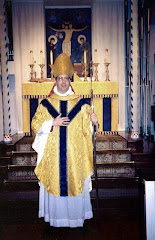 This from Intercessors Network and Lars Widerberg out of Sweden
This from Intercessors Network and Lars Widerberg out of SwedenThree years ago, Turkmenistan declared its Religion Law to be a priority in a series of reforms. Today, according to Slavic Gospel Association, it has crafted one of the harshest laws on religion of all 15 former Soviet Republics.
The changes it was making alarmed the Organization for Security and Co-operation in Europe (OSCE) which did a legal review on the law. Its report included several criticisms of the Turkmenistan law. Simply put, says SGA's Joel Griffith, "They basically charged it with violating international human rights standards."
Among the OSCE recommendations, Griffith says, "They want an end to the ban on unregistered religious activity, and they also want the government to stop banning the private teaching of religion."
Griffith explains that the law came about because Turkmenistan saw the issues faced in Afghanistan, Iraq and Pakistan and took some pre-emptive measures. "They are afraid of radicalism of any kind. Because there is such an increase in radical Islam right now (the whole Jihadist network), it's almost like there's a feeling like ‘if we crack down on one, we've got to crack down on all of them.'"
While Turkmenistan's officials refused to discuss whether or not they plan to conform to the review, the citizens are not at all ambivalent. "They're pretty skeptical about any legal changes. Even if something on paper seems to grant some sort of religious freedom, as a lot of the constitutions in these countries do, in practice, the state still basically plays a heavy hand when it comes to dealing with evangelical churches."
This year's U.S. Commission on International Religious Freedom report lists Turkmenistan among its "countries of particular concern." Sharing the hope of Christ won't stop, but "increasingly, we have to be very discrete. You couldn't go to Turkmenistan, for example, and maybe openly help a church like you would in Ukraine or Russia. Anything that is ever done there would have to be discrete or not publicized so much," says Griffith.
Discretion will play a big role in their work there this year. Griffith says, "We're hoping and praying that we would just continue to see a change in heart in the government where they would realize that there are worse threats out there than evangelical Christian churches which typically proclaim the Gospel and peace and reconciliation in the name of Jesus."
Griffith says don't discount prayer. "They've had government officials actually come to saving faith, quietly and discretely. Behind the scenes, they're able to have some impact. You can never underestimate the power of the Gospel and what it can do, even in a place where it seems very dark."


























No comments:
Post a Comment